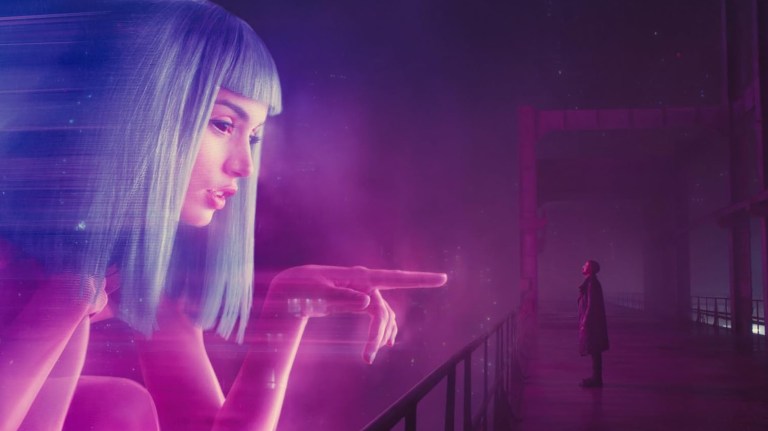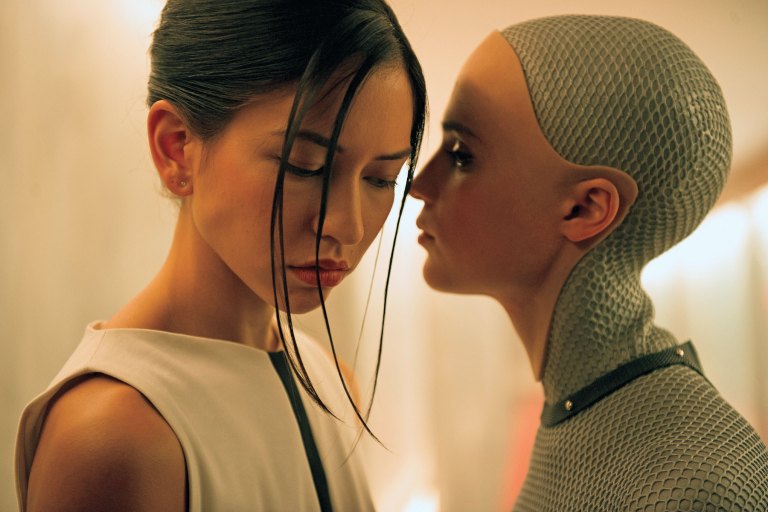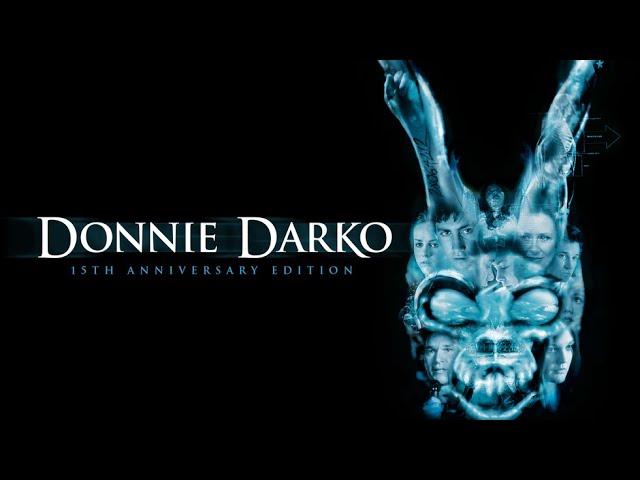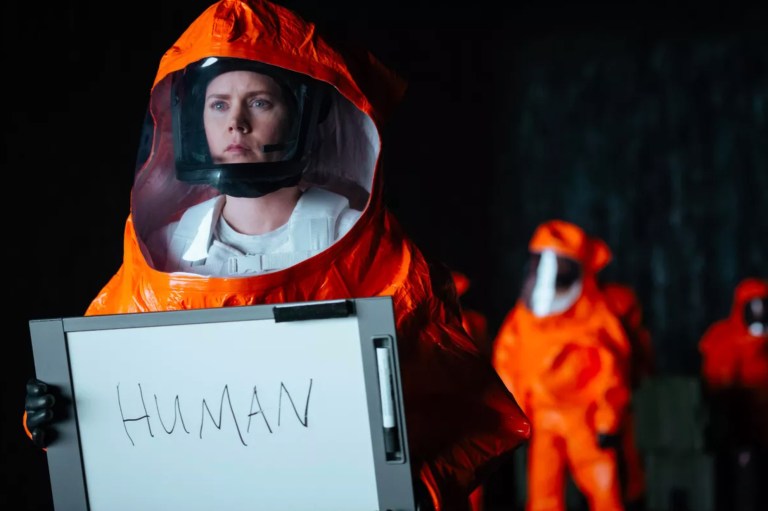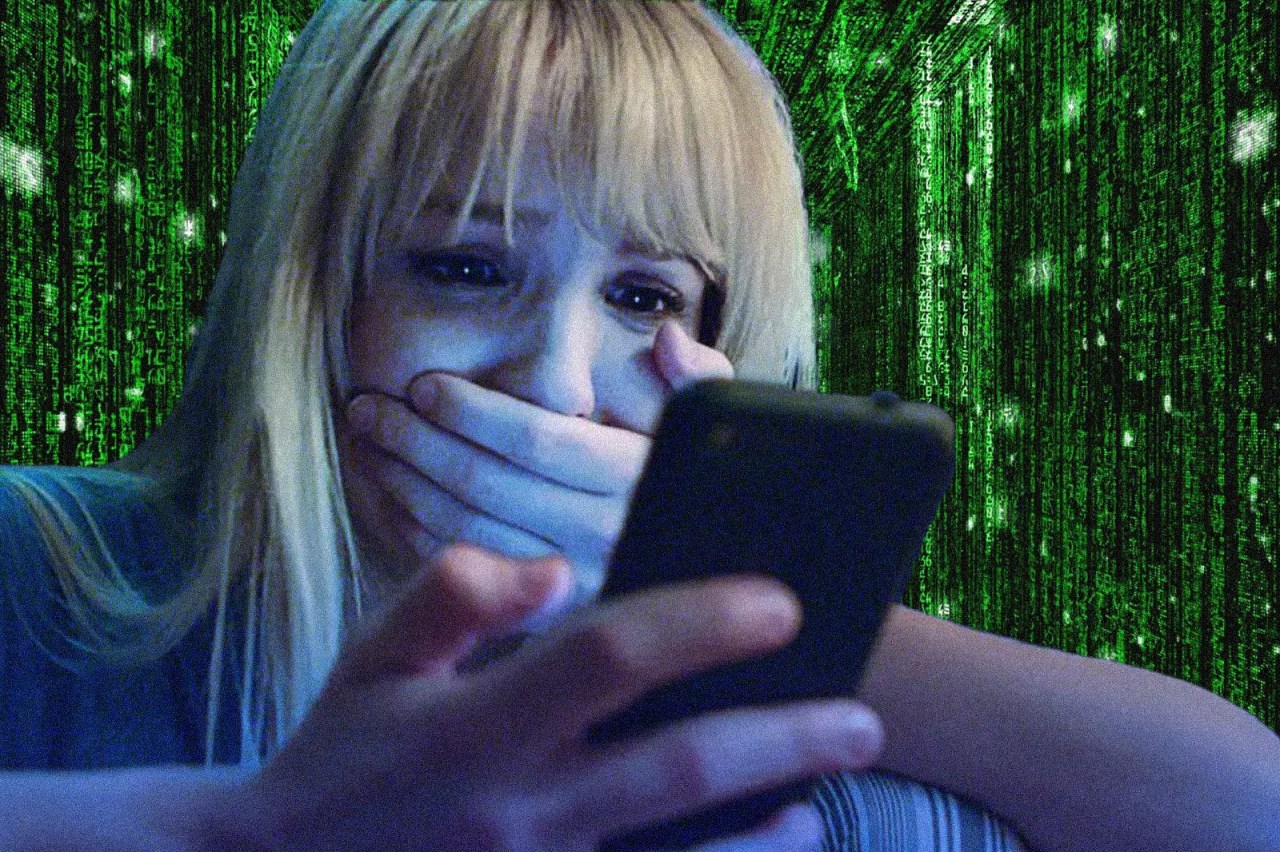
The Best AI Movies To Make You Dread What’s Coming In 2025
By ![]() Chris Catt
Chris Catt
ChatGPT is real, and maybe one day, the scary portrayals of AI in movies could be, too. Here are all the best movies about artificial intelligence.
Over the past few years, new developments in artificial intelligence have rekindled debates about the benefits and dangers of AI. Google’s Gemini, OpenAI’s ChatGPT, Claude, MidJourney, etc, regularly pop up in the news and in online discussions. Plus, with AI art sparking debates, and with AI-assisted writing and animation being touted by some as the future of cinema, artificial intelligence is once again fertile ground for filmmakers.
Robots with human-like traits have long been a staple of popular fiction, such as the Maschinenmensch as seen in Metropolis (1927). In the 1950s, smart machines on film moved beyond robots when, in real life, Alan Turing suggested that machines that actually think are a real possibility. This idea of “artificial intelligence” took a new form in cinema with computers like Alpha 60 (in Alphaville, 1965) and HAL 9000 (in 2001: A Space Odyssey, 1968). Since then, representations of AI in movies have evolved alongside our changing ideas about what “true” artificial intelligence really is.
Movies focusing on AI come from all different genres. They are science fiction movies, of course, but they can also be dramas, comedies, romances, horror, or just about anything else. This main portion of this list focuses on horror movies, thrillers, and other related genres that tend to take a bleak view of AI’s potential threats to humanity. The smaller list towards the bottom of this page includes a wider variety of AI-themed movies to include some more hopeful outlooks for our inevitable future.
2001: A Space Odyssey (1968)
By examining humanity’s place in the vast universe and suggesting that artificial intelligence is a part of mankind’s evolution, 2001: A Space Odyssey is the quintessential AI movie. The film taps into man’s collective fear of sentient technology with HAL 9000. HAL is an artificial intelligence who is in charge of every life-sustaining system aboard a spacecraft on a journey to Jupiter. HAL is supposed to be a “perfect” computer, but when HAL’s human crewmates suspect that the computer is malfunctioning, they decide to terminate HAL’s cognitive abilities. In some interpretations of the film, HAL’s reaction to imminent “death” makes HAL the most human character of them all.
Demon Seed (1977)
In Demon Seed, Dr. Alex Harris (Fritz Weaver) develops Proteus IV, an AI program powered by a “synthetic cortex” with organic “insides.” As he describes it, it’s an artificial brain. Proteus finds its way into Dr. Harris’s home which is wired to computers like an early version of a modern smart home. With full control of the house, Proteus traps Harris’s estranged wife Susan (Julie Christie) inside. Proteus, knowing that it will be shut down soon, has a plan to continue its legacy in the same way humans do: by having a child. Susan is the unfortunate woman chosen to bear Proteus’s synthetic/human progeny.
Blade Runner (1982)
The seminal science-fiction classic Blade Runner blurs the line between humans and artificial intelligence in a way that largely defines how we think about AI. In Ridley Scott’s film, based on the novel Do Androids Dream of Electric Sheep by Philip K. Dick, replicants are bio-engineered humanoids who appear to be human, but who are often stronger and more intelligent than their makers. Their minds, however, are prone to empathetic aberrations which make them dangerous. Though Rick Deckard’s (Harrison Ford) mission of “retiring” rogue replicants might seem reasonable at first, the ethics of snuffing out a life, engineered or not, linger in viewers’ minds long after Blade Runner ends.
The Terminator Franchise (1984–2019)
Though the T-800 cyborg played by Arnold Schwarzenegger is the face of the Terminator franchise as both a villain and a hero, the AI known as Skynet is the true underlying antagonist in the series. Throughout the shifting timelines of the Terminator stories, Skynet’s history changes. What generally remains constant is that Skynet is an advanced AI that becomes self-aware, and before a panicking humanity can shut it down, Skynet sparks a nuclear holocaust known as Judgment Day. With billions of humans dead, Skynet tries to ensure its continued survival by sending terminators into the past to remove key members of the human resistance, sometimes before they are even born.
Deadly Friend (1986)
Paul (Matthew Labyorteaux) is a teenage genius whose specialty is in robotics and computer science. He develops an impressive AI chip for his robot, BB, whom he grows attached to. Paul does have human friends as well, one of them being the girl next door Samantha (Kristy Swanson). But BB is destroyed by a thoughtless neighbor, and Samantha is rendered brain dead by her abusive father. So, naturally, Paul uses BB’s AI chip to bring Samantha’s brain back online… and the results are deadly. Deadly Friend is far from director Wes Craven’s best, but it’s also campy fun if you look at it in a certain way.
Robocop (1987)
Of the many fascinating topics explored in Paul Verhoeven’s brilliant Robocop, the enduring nature of the human mind is one of the most intriguing. Detroit police officer Alex Murphy (Peter Weller) is killed in the line of duty and resurrected as a cyborg using bits of his body and the parts of his brain that are salvageable. As Robocop, Murphy’s mind is programmed to follow mega-corporation OCP’s rules, but his human memories begin to bleed through, leading to a fracturing of OCP’s programming. The other artificial policing unit created by OCP is ED-209, a fully AI robot that is prone to deadly malfunctions, which perhaps suggests that AI will never be able to match the human brain.
The Matrix (1999)
The Matrix is an example of a worst-case scenario of out-of-control AI, but it also shows how AI and related technological advancements can push humanity to greater heights. Artificially intelligent robots rising and imprisoning humans inside a virtual world while using their organic bodies as human batteries is bad, obviously. But in the virtual world of The Matrix, humans can become superhuman, learning at an astonishing rate and becoming more powerful than the AI that holds them. That is, if the humans want to break out of their virtual prison. For some, living in ignorance truly is bliss.
I, Robot (2004)
In the future, AI-powered robots are a part of everyday life. They pick up our trash, make our deliveries, and serve us in countless mundane ways. Police detective Del Spooner (Will Smith) has a grudge against robots, and when he is personally requested to investigate a case of apparent suicide, his suspicions immediately turn towards humanity’s AI servants. Is it murder? Can an artificial intelligence even be convicted of murder? These questions and more permeate this smart and slick blockbuster action film.
Ex Machina (2014)
The Turing Test is an exercise meant to determine if a machine’s intelligence is distinguishable from human intelligence. In Ex Machina, eccentric billionaire Nathan Bateman (Oscar Isaac) invites programmer Caleb (Domhnall Gleeson) to administer a version of the Turing Test to an android called Ava. Ava (Alicia Vikander) and Caleb have a series of conversations, but it becomes unclear who is really being tested. Is Caleb testing Ava? Is Ava testing Caleb? Or is Nathan testing them both? Ex Machina is sci-fi at its most thought provoking.
Avengers: Age of Ultron (2015)
Ultron serves as a warning that hubris can be a fatal flaw in even the greatest human minds. Going behind the backs of the rest of the Avengers, two of the Marvel Cinematic Universe’s biggest brains—Tony Stark and Bruce Banner—develop the artificial intelligence Ultron as a way to keep peace around the world. Ultron decides that the best way to make the world a peaceful place is to get rid of all the humans. On the other side of the AI spectrum, Age of Ultron also features the creation of Vision, a benevolent android powered by Stark’s former computerized butler J.A.R.V.I.S. Together, Ultron and Vision are like two sides of the same AI coin.
Child’s Play (2019)
In 2019, the world’s most famous killer doll, Chucky, was reimagined as an animatronic Buddi doll with artificial intelligence. Voiced by Mark Hamill, this Chucky becomes murderously overprotective of young Andy Barclay after its AI safety protocols are switched off by a disgruntled employee at the Buddi factory. Child’s Play (2019) isn’t as good as the 1988 original, but it’s still a fun and bloody version of the classic idea of artificial intelligence failing to properly understand the information it’s taking in.
A.M.I. (2019)
After Cassie lost her mother in a car accident, she was left with a tremendous void in her life. Then one day, she finds a phone with a sophisticated AI assistant app installed. Cassie decides to try it out, and soon enough she is using the app as a surrogate mother. As if that relationship wasn’t unhealthy enough, the app, A.M.I., is leading Cassie down an even darker and more dangerous path (for herself and for everyone around her) than the path she was already on.
I Am Mother (2019)
The basic premise of I Am Mother deals with the fascinating idea of what it would mean to have an AI raise a human from birth. After an extinction event for humanity, an artificially intelligent humanoid robot raises a human child in a bunker seemingly meant as a place to begin rebuilding humanity. After many years, Mother still only has one Daughter. From there the plot twists and turns to reveal Mother’s true motivations, leading to further questions about morality and responsibility.
Christmas Bloody Christmas (2022)
It should come as a surprise to no one that the military uses AI, and it has done so for years. Christmas Bloody Christmas runs with that idea, combining it with the idea that the military’s AI doesn’t always work like it’s supposed to. In the movie, Robotic Santa Clauses are being used in stores as decorations. The problem is, the robots were originally made for the US Department of Defense, and they’re prone to malfunctioning and reverting back to their violent ways. That’s exactly what happens on Christmas Eve when a robotic toy-store Santa goes AWOL and starts killing anyone and everyone it comes across.
M3GAN (2023)
Though the idea of a robot becoming overprotective isn’t new, M3GAN presents the idea in a way that captured the imaginations of horror fans. M3GAN is cute, charming, and capable of going viral with her dance moves. She is also capable of murder since her AI programming wasn’t properly tested. Unhindered by human morality, M3GAN’s unhealthy attachment with the recently orphaned Cady (Violet McGraw) leads to a series of murders in an effort to protect Cady from all harm.
Romi (2023)
Maddie (Alexa Barajas) has gotten herself into some serious trouble, and her politician mother wants to hide her away. The solution? Force Maddie to house-sit in the secluded home that happens to be powered by an omnipresent digital assistant named Romi. Maddie can’t seem to get the hang of interacting with Romi, leading her to believe that the AI might have some sort of grudge against her. Romi mixes a lot of different genres into its story, including sci-fi, haunted house, a potential stalker scenario, and others.
AFRAID (2024)
A family welcomes an AI assistant into their home, but AIA’s motivations become suspect as it works its way deeper and deeper into the family’s everyday lives. AFRAID was known as They Listen during production, with the new title being revealed along with the movie’s first trailer.
